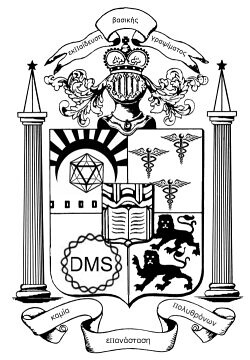I am very suspicious of medicine. Let me say this carefully, so there’s no confusion. I believe that virtually every physician believes they are motivated to do good, and believes that they are doing good. I accept as a fact that modern, western medicine is the only discipline of healing that is worth anything. I will begin, very shortly, training to become a physician.
However, there are many aspects of medicine that trouble me. The first is the streak of arrogance that runs through the profession. The white-coat fetish is a good example or this from a stylistic standpoint, but this self-confidence does substantial damage as well. The Tambocor debacle chronicled by Thomas Moore in _Deadly Medicine_ is a prime example of how doctors will supply patients with treatments that are scientifically known to be hazardous because they think they know better.
There are other critiques, problems that are failing to surface because my brain is cloudy, but these will do. The trouble is, knowing what I know, I am still walking into it. Of course, scrubs don’t have pockets, so you have to wear a coat so you’ll have somewhere to put your pens. Of course you wear it to go to lunch, otherwise you’d have to change. Of course you call yourself Dr., otherwise people will be confused. Etc. etc.
Falling into this is aided and abetted by some of the truly impressive things physicians do. When I revisited the md/phd program, I sat in on a physical diagnosis class, which is where second year students go around the hospital interviewing patients and then present the cases to the instructor. This is essentially what they will do in their clerkships and residencies (and practices) except that they aren’t the ones treating the patients. I sat in on the part where they presented their cases, and I was wildly impressed by the amount of complexity they had mastered, both in the patients and the background material. It gives you the feeling that medicine is an intellectual pursuit.
This isn’t necessarily the case. As a caveat, I lack facts in this area, and such facts would be difficult to acquire. However, I have been told, and it seems reasonable, that medicine is primarily pattern recognition, which requires a good memory. The memory may be either broad or deep, depending on whether the physician is a specialist or generalist but not much critical thinking is required. A ‘good doctor’ may be one that is more of a hand-holder than an intellectual mastermind.
The apparent intellectual parity between medical practice and medical science makes it acceptable to become more and more the physician. One of these disciplines comes with a lot more prestige. A practicing physician can get lunch money from a five-minute consult. Scientists are generally stuck begging from the feds. To add insult to injury, if an M.D. and a Ph.D. are both competing for a grant from the NIH (the largest source of scientific largesse on the planet, part of the federal government), the M.D. is more likely to get it.
Finally, beyond intellectual difficulty, beyond prestige, is success. A practicing physician will, in an average day, treat or cure multiple sick people. They are surrounded by success. Conversely, most research projects fizzle. As I spend season after season chasing a seemingly impossible scientific goal, who is to say that the easy success of medical practice won’t lure me to spend less and less time in the library?
Today, at least, I say I’m sick of getting all A’s. I’m sick of not studying and getting 94%. I want my successes to mean something to me, and the only way they will do that is if they are surrounded by failure.
OK – that’s a helluva long post. But I wanted to get that all down in writing, so if I start being a jerk in the future I’m on the record saying otherwise.
Subscribe to:
Post Comments (Atom)

1 comment:
I have finally succumb to visiting your blog. Rather unsurprisingly, I rather like it. You're right about a number of things, medical doctors tend to let their confidence get ahead of them. For that reason, I've found that a PA is generally a much better option than the physician. Given this confidence or as some say, arrogance, why then do doctors seem so unable or unmotivated to stand up to their patients? Is it because the science of diagnosis is based in large part on the "testimony" of the patient? Or is it that the physician is supposed to be there to help the patient thus making the doctors think that the patient is always right (in the way that it is supposed to work in retail, the customer is always right)?
Post a Comment